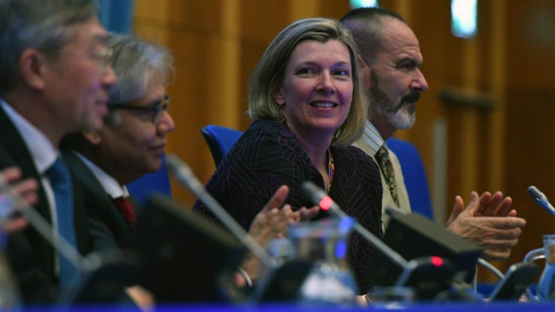The IAEA profiles employees to provide insight into the variety of career paths that support the Agency’s mission of Atoms for Peace and Development and to inspire and encourage readers, particularly women, to pursue careers in STEM (science, technology, engineering and mathematics) or STEM-adjacent fields. Read more profiles of women at the IAEA.
“I want every country to have a cancer plan and more people to know about the cancer work that the IAEA does," says Lisa Stevens, who has spent a quarter of a century working in the field of cancer control and now leads the Programme of Action for Cancer Therapy (PACT) at the IAEA.
Stevens’ career has been informed by her background in science. The oldest of three children, she was first inspired to pursue a scientific career by her parents, who both had careers in the STEM disciplines. Her mother worked in the medical and scientific field, having trained as a mammography and X ray technician, and her father was an engineer.
Learning about her parents’ work helped Stevens to understand the opportunities available if she chose a career in science.
“You have to excite the young mind; show and promote opportunities in science while they are young,” she said. “In any field, you want the best. Making sure that young children, girls and boys, have opportunities is important. Diversity is important.”
Stevens always had a deep interest in biology and enjoyed science classes in high school. “I liked studying about the human body, liked chemistry, physics and the scientific methods,” Stevens said.
From a young age, Stevens was also interested in an international career. She earned a bachelor’s degree in biology and Spanish because she thought she might work as a physician overseas one day. She attended a small liberal arts school in the farmlands of Illinois in the United States of America, where she discovered the joys of DJing and philanthropy, as well as scientific studies. She continued her studies in molecular and cellular biology in graduate school at the University of Maryland, carrying out her thesis research at the United States National Cancer Institute (NCI) and graduating with a PhD in 1999.









